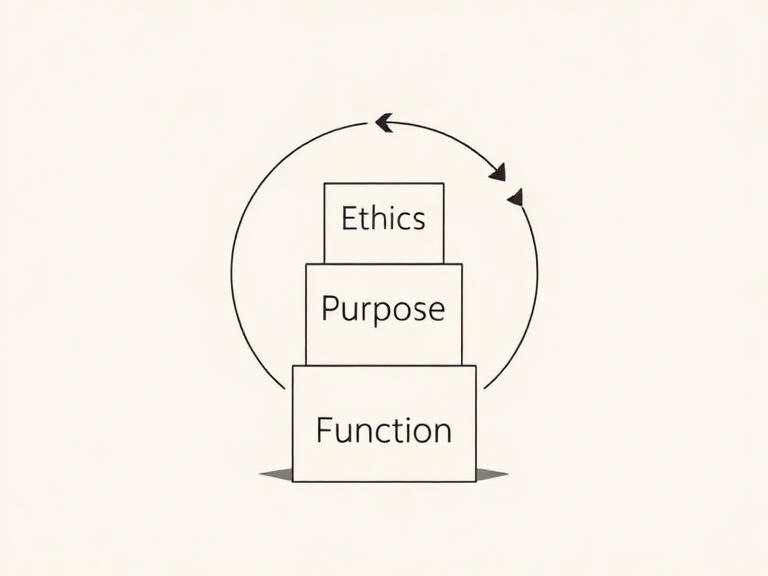The Real Value of Values

John E. Kaye
- Published
- Home, Opinion & Analysis

From heated office debates to passive-aggressive emails, disagreement is a natural part of any workplace, just like in other areas of life. But if it’s not managed effectively or left unaddressed, a simple difference of opinion or personality clash can escalate into damaging conflicts that affect the whole team, writes corporate trainer Pete Sutton
In my career, I’ve witnessed the smallest of disputes escalate into fiery, physical confrontations. And I’ve seen long-term workplace allies fall out over something relatively minor and never speak again.
Most of the time:
- Both sides have valid reasons for their stance.
- Each side can understand the other’s viewpoint but still opposes it.
- A compromise doesn’t satisfy either side.
- Each party acts on what they believe is the right thing to do.
- Conflict drains resources and slows down progress.
- Innocent bystanders, caught in the crossfire, often lack the power to escape the situation.
So why do we let conflict get in the way when a reasonable compromise could save time, money, and stress?
The answer often lies in values – the core principles we hold dear. Values shape our behaviour and guide our sense of right and wrong. We develop them throughout our lives from parents, family, peers, and social institutions, and they usually stick with us. Our values act as a moral compass, helping us define what is acceptable.
But problems arise when our values clash with someone else’s.
Here’s an example from my own career: My IT team had been working non-stop, including weekends, to launch new client systems. Many were stressed and had sacrificed personal time to meet the deadline. Once testing was complete, I sent an email thanking them for their efforts and promised they wouldn’t need to work that weekend. However, my boss immediately called and told me to reverse that decision, insisting the team be on standby in case of issues. I was furious. The team had earned a break, and I couldn’t understand why my boss didn’t see that.
It turned out the conflict arose from our differing values. My top value was fairness, while my boss valued achievement and drive. Our priorities clashed, leading to a disagreement on how to proceed.
Here’s the thing about values – we all have them, but we may not fully understand what they are, especially in stressful situations. Our values may not always align with how we’d like to think we behave.
A simple exercise can help both leaders and employees to better understand their values and prepare for future conflicts. Imagine you’re applying for a dream job. What words in the job description would attract you? (For example, “well-paid,” “exciting,” “freedom,” “self-directed,” “creative.”) Write down around 25 words, most of which will represent values. If you list something like “ability to work from home,” consider the value behind it, such as “family,” “flexibility,” or “environmentally friendly.” Pick the word that resonates most with you and write them down.
Now, narrow the list to 15, then 10, and finally five. You’ll need to prioritise and make some tough choices. Once you have your top five values, think about what one factor would make you reject the job, even if it aligns with your values (such as “unethical” or “lack of creative responsibility”). The opposite of this factor may reveal another key value for your list.
Your final list reflects what’s most important to you when making decisions. Now, think about a person you’ve conflicted with already or who you might conflict with in the future – what do you think their top five values might be? Is there a way to find a solution that respects both their values and your own?
Consider what kind of conflict strategy you want to use, now that you’ve thought about values.
Do you want to:
- Compromise?
- Avoid the person or issue altogether?
- Accommodate their needs this time?
- Build a joint solution that satisfies both sets of values?
This straightforward approach helps leaders reflect on their behaviour before acting impulsively and can be taught to staff as well. It reduces stress for everyone involved and can prevent minor disagreements from escalating into all-out office war.
You might be wondering how I resolved my own conflict. I called each of the five team members my boss wanted on weekend standby and told them not to answer their phones that evening. I avoided the conflict and hoped for the best!

Pete Sutton is an internationally acclaimed trainer with extensive experience in Europe, Asia, and the Middle East. With a 20-year career at IBM, where he also earned his MBA, he transitioned into personal development, leadership, and management training. For the past 17 years, he has empowered individuals through his training programs, which draw on his background and training in NLP, clinical hypnotherapy, and as a DISC practitioner and certified Dale Carnegie trainer.
Main image: Courtesy Cottonbro Studio/Pexels
Sign up to The European Newsletter
RECENT ARTICLES
-
 Why social media bans won’t save our kids
Why social media bans won’t save our kids -
 This one digital glitch is pushing disabled people to breaking point
This one digital glitch is pushing disabled people to breaking point -
 Japan’s heavy metal-loving Prime Minister is redefining what power looks like
Japan’s heavy metal-loving Prime Minister is redefining what power looks like -
 Why every system fails without a moral baseline
Why every system fails without a moral baseline -
 The many lives of Professor Michael Atar
The many lives of Professor Michael Atar -
 Britain is finally having its nuclear moment - and it’s about time
Britain is finally having its nuclear moment - and it’s about time -
 Forget ‘quality time’ — this is what children will actually remember
Forget ‘quality time’ — this is what children will actually remember -
 Shelf-made men: why publishing still favours the well-connected
Shelf-made men: why publishing still favours the well-connected -
 European investors with $4tn AUM set their sights on disrupting America’s tech dominance
European investors with $4tn AUM set their sights on disrupting America’s tech dominance -
 Rachel Reeves’ budget was sold as 'fair' — but disabled people will pay the price
Rachel Reeves’ budget was sold as 'fair' — but disabled people will pay the price -
 Billionaires are seizing control of human lifespan...and no one is regulating them
Billionaires are seizing control of human lifespan...and no one is regulating them -
 Africa’s overlooked advantage — and the funding gap that’s holding it back
Africa’s overlooked advantage — and the funding gap that’s holding it back -
 Will the EU’s new policy slow down the flow of cheap Chinese parcels?
Will the EU’s new policy slow down the flow of cheap Chinese parcels? -
 Why trust in everyday organisations is collapsing — and what can fix it
Why trust in everyday organisations is collapsing — and what can fix it -
 In defence of a consumer-led economy
In defence of a consumer-led economy -
 Why the $5B Trump–BBC fallout is the reckoning the British media has been dodging
Why the $5B Trump–BBC fallout is the reckoning the British media has been dodging -
 WPSL Group unveils £1billion blueprint to build a global golf ‘super-group’
WPSL Group unveils £1billion blueprint to build a global golf ‘super-group’ -
 Facebook’s job ads ruling opens a new era of accountability for artificial intelligence
Facebook’s job ads ruling opens a new era of accountability for artificial intelligence -
 Robots can’t care — and believing they can will break our health system
Robots can’t care — and believing they can will break our health system -
 The politics of taxation — and the price we’ll pay for it
The politics of taxation — and the price we’ll pay for it -
 Italy’s nuclear return marks a victory for reason over fear
Italy’s nuclear return marks a victory for reason over fear -
 The Mamdani experiment: can socialism really work in New York?
The Mamdani experiment: can socialism really work in New York? -
 Drowning in silence: why celebrity inaction can cost lives
Drowning in silence: why celebrity inaction can cost lives -
 The lost frontier: how America mislaid its moral compass
The lost frontier: how America mislaid its moral compass -
 Why the pursuit of fair taxation makes us poorer
Why the pursuit of fair taxation makes us poorer



























